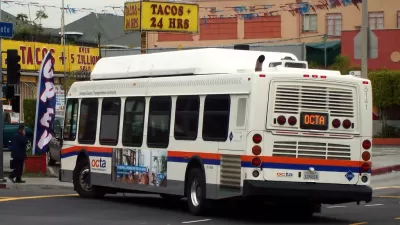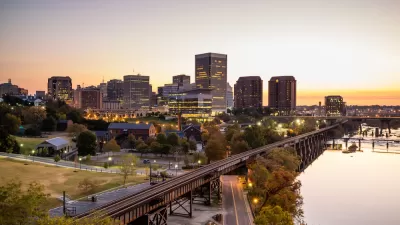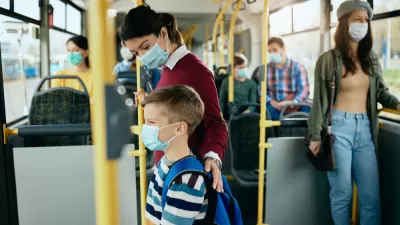A lack of access to affordable and reliable transit is being cited as a major reason why many college students don't finish school.

"At a time when colleges are increasingly focused on how to get and keep students enrolled and on a path to a degree, some of the most surprising challenges are not academic but logistical," writes Charlotte West. One of these challenges: affordable, reliable transportation.
With the majority of U.S. college students commuting to class, transportation can make a crucial difference for millions who cannot access or afford transit services. One study found that "Hispanic students were 19 percent more likely to report transportation problems as creating a barrier to college completion than non-Hispanics." Lack of access to transportation can lead students to miss classes and fall behind, while expensive car repairs and transportation costs can put students in even deeper debt.
In response, some colleges and cities have launched programs that provide low-cost or free transit passes and bring education closer to students with satellite campuses located near transit, sometimes funded with COVID-19 relief funds.
Rural students face their own set of challenges as they're often reliant on personal transportation in regions with sparse public transportation services. In these cases, colleges can help students by providing their own shuttle services or grants to help students pay for car repairs. According to research cited in the article, supporting effective and affordable transportation for students can have a positive impact on students' chances to stay enrolled and graduate, while advocates of fare-free transit argue that eliminating fares would increase equity and bring more people closer to economic opportunities and urban amenities.
FULL STORY: A surprising reason preventing some students from finishing college: Lack of transportation

Planetizen Federal Action Tracker
A weekly monitor of how Trump’s orders and actions are impacting planners and planning in America.

Chicago’s Ghost Rails
Just beneath the surface of the modern city lie the remnants of its expansive early 20th-century streetcar system.

San Antonio and Austin are Fusing Into one Massive Megaregion
The region spanning the two central Texas cities is growing fast, posing challenges for local infrastructure and water supplies.

Since Zion's Shuttles Went Electric “The Smog is Gone”
Visitors to Zion National Park can enjoy the canyon via the nation’s first fully electric park shuttle system.

Trump Distributing DOT Safety Funds at 1/10 Rate of Biden
Funds for Safe Streets and other transportation safety and equity programs are being held up by administrative reviews and conflicts with the Trump administration’s priorities.

German Cities Subsidize Taxis for Women Amid Wave of Violence
Free or low-cost taxi rides can help women navigate cities more safely, but critics say the programs don't address the root causes of violence against women.
Urban Design for Planners 1: Software Tools
This six-course series explores essential urban design concepts using open source software and equips planners with the tools they need to participate fully in the urban design process.
Planning for Universal Design
Learn the tools for implementing Universal Design in planning regulations.
planning NEXT
Appalachian Highlands Housing Partners
Mpact (founded as Rail~Volution)
City of Camden Redevelopment Agency
City of Astoria
City of Portland
City of Laramie





























